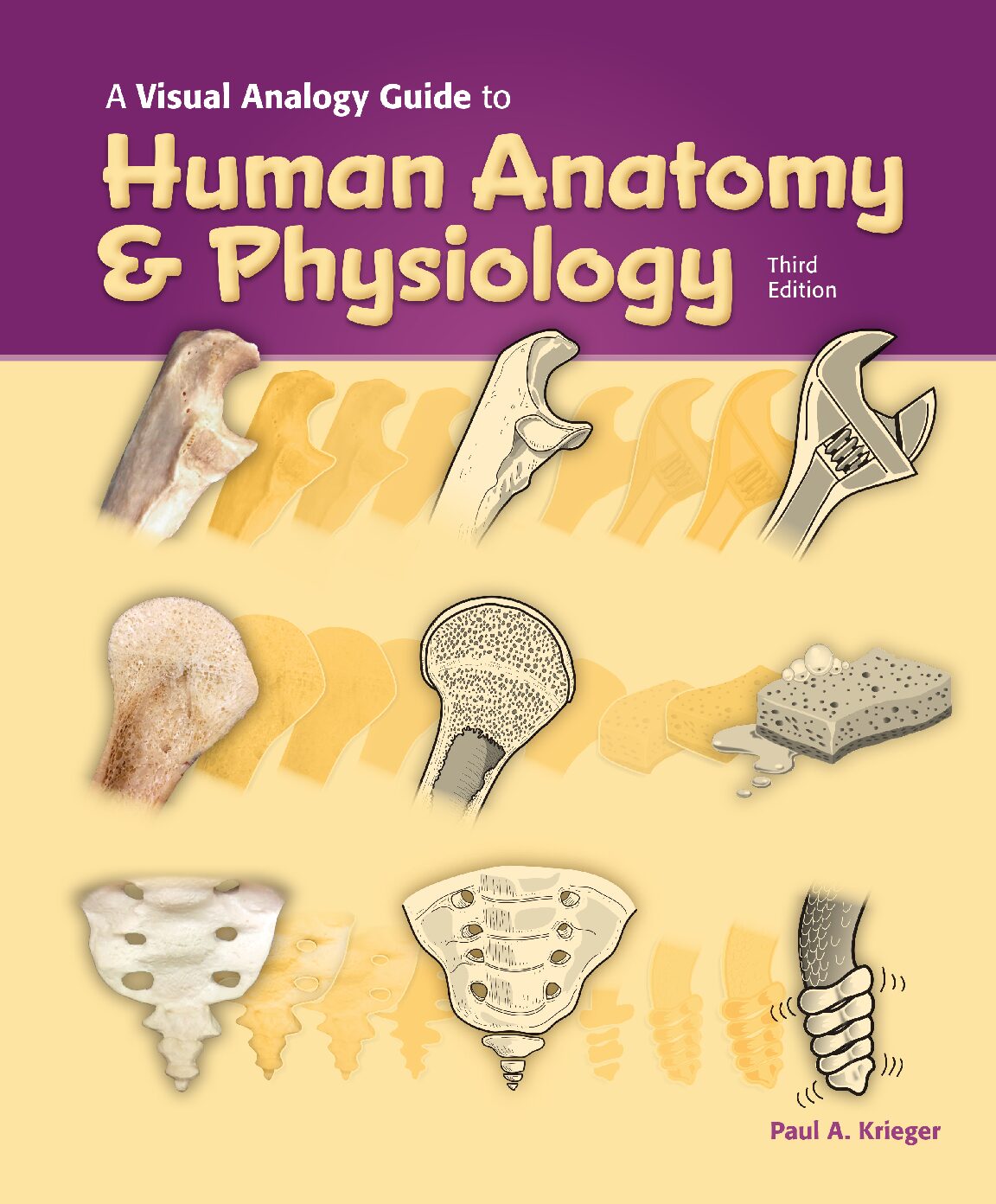All four books in textbook supplement author Paul Krieger’s Visual Analogy series showcase a visual analogy on the cover, a great advertisement for one of the key learning tools that make his books unique: visual analogies.
“My whole book idea was born in the lab from my teaching,” says Krieger, whose books include A Visual Guide to Human Anatomy, A Visual Analogy Guide to Physiology, A Visual Analogy Guide to Human Anatomy and Physiology, and A Visual Analogy Guide to Chemistry. “I used to sketch visual analogies out at my students’ lab tables, and it was students who encouraged me to write my first book 17 years ago. In the anatomy and physiology lab, students have to learn different anatomical structures. So, for example, when they need to learn the thoracic vertebra, I use a giraffe head to create a visual analogy that helps them learn and remember all of the parts of the thoracic vertebra, which is shaped like a giraffe head.”






